As things stand, Bangladesh election is all but doomed

The attention that Bangladesh's upcoming general election is already drawing at home and abroad is unprecedented, at least in comparison to what the previous two elections garnered. In addition to the political parties themselves, the international community has also been talking about the election long before the announcement of the election schedule. The opposition on the streets, BNP, is still demanding an election under a non-partisan interim government, while the ruling party has been calling attention to the illegality of such a proposition given the absence of constitutional provisions for such a measure.
While the two parties have stuck to their guns, demands for talks between the two archrivals have gotten louder inside and outside the country. US Ambassador in Dhaka Peter Haas handed over a letter from Donald Lu, the US assistant secretary of state for South and Central Asian affairs, to Jatiya Party Chairman GM Quader, which prescribed holding unconditional talks. On the same day, BNP said it had also received the letter. However, the ruling Awami League said it had not received any such communiqué. The next day, Prime Minister Sheikh Hasina hinted that the election schedule would be announced within a day or two. And lo and behold, after only a few hours, our election commissioners conveyed that their chief would address the nation on November 15 to announce the election schedule. Chief Election Commissioner Kazi Habibul Awal, duly taking his cue from the PM, made the formal announcement during a live televised address, officially announcing that the 12th parliamentary election would be held on January 7, 2024. Unsurprisingly, the opposition parties rejected the schedule outright and called a general strike in protest.
As an independent and constitutional body delegated with the responsibility of conducting and overseeing elections, it is the Election Commission's duty to announce the schedule, which it did. Opposition parties are claiming that the commission made the announcement as per the ruling party's desires. But did the EC have any other recourse? The election office must announce the schedule, sooner or later. Thanks to the annulment of the caretaker government provision through a constitutional amendment, whatever the EC does now will only deepen the prevailing crisis, especially if it takes its cues from the head of the government.
The EC announced the election schedule with the two main political camps in directly opposite positions regarding the election itself. In such a scenario, how will the election turn out? Will the opposition camp still participate in it? Before seeking an answer to this question, the political situation before and after the announcement of the election schedule needs to be analysed.
Things were largely peaceful till October 28, when the BNP's rally was foiled by violence and attacks. BNP's Nayapaltan headquarters has been under lock and key since that day. Senior leaders of the party, including Secretary General Mirza Fakhrul Islam Alamgir, have been arrested. BNP has since toughened its campaign with frequent hartals and blockades. More than a hundred vehicles have been torched or vandalised. Four days of hartals or blockades throughout the work week has become the new normal for the citizens. BNP and like-minded partners have made it clear that they will not join the election.
On the other hand, AL leaders and activists have also taken control of the streets amid BNP's blockades. The ruling party has started selling nomination forms to prospective candidates, and the festive mood at the party's Bangabandhu Avenue office is hard to ignore. In reply to Donald Lu's letter, AL has said the time for dialogue has run out. This implies that, as far as the ruling party is concerned, any hope for a settlement or agreement through talks is all but over, and that the AL is moving ahead with the mission to form its government for the fourth consecutive term.
CEC Habibul Awal has urged all political parties to find a solution to end the political impasse. "On behalf of the Election Commission, I humbly request all political parties to find a solution, avoiding conflict and violence," he said while announcing the election schedule. But it seems that the ruling party is not interested at all to respond to this call.
Holding a fairly acceptable election is quite a basic concept in modern and developed democracies. It is something that most countries in the sub-continent have also mastered.Only weeks ago, there was an election in the Maldives that saw a neck-and-neck fight between opponents, with little news of violence or intimidation. Last year, there was an acceptable election in Nepal, too. There will be an election in India next year and not even the fiercest opponents are expected to question the veracity of the results there. Even in Pakistan, elections are less controversial than in Bangladesh.
Given the attitudes of our two archrivals as we head towards the election, there is no reason for one to feel hopeful. The EC may have announced its schedule, but that has raised even more questions and failed to answer any of the existing ones. If this goes on, might Bangladesh see a repeat of the 2014 election, when 153 MPs were elected uncontested? If so, any hopes and aspirations of the Bangladeshi people for a free, fair, and competitive election will remain a far cry.
Mohammad Al-Masum Molla is chief reporter at The Daily Star.
Follow The Daily Star Opinion on Facebook for the latest opinions, commentaries and analyses by experts and professionals. To contribute your article or letter to The Daily Star Opinion, see our guidelines for submission.

 For all latest news, follow The Daily Star's Google News channel.
For all latest news, follow The Daily Star's Google News channel. 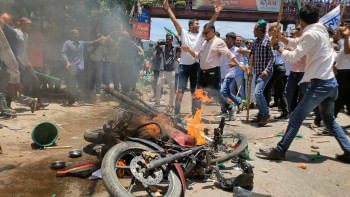
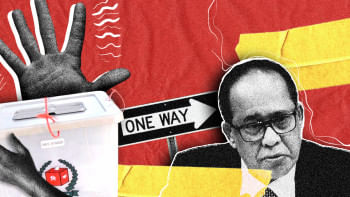
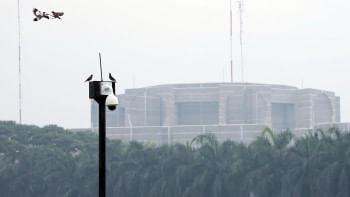


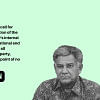
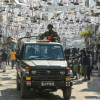
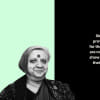



Comments